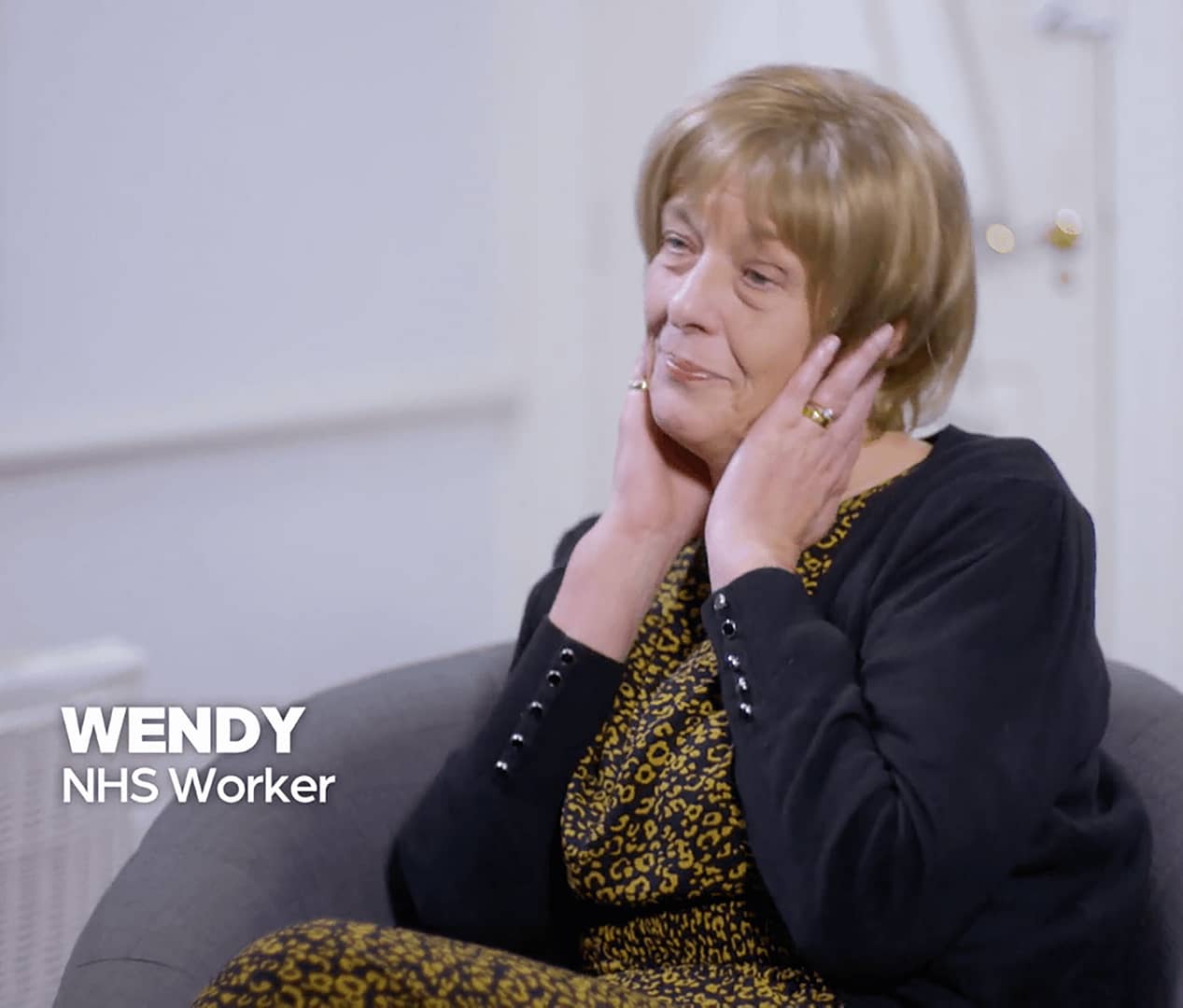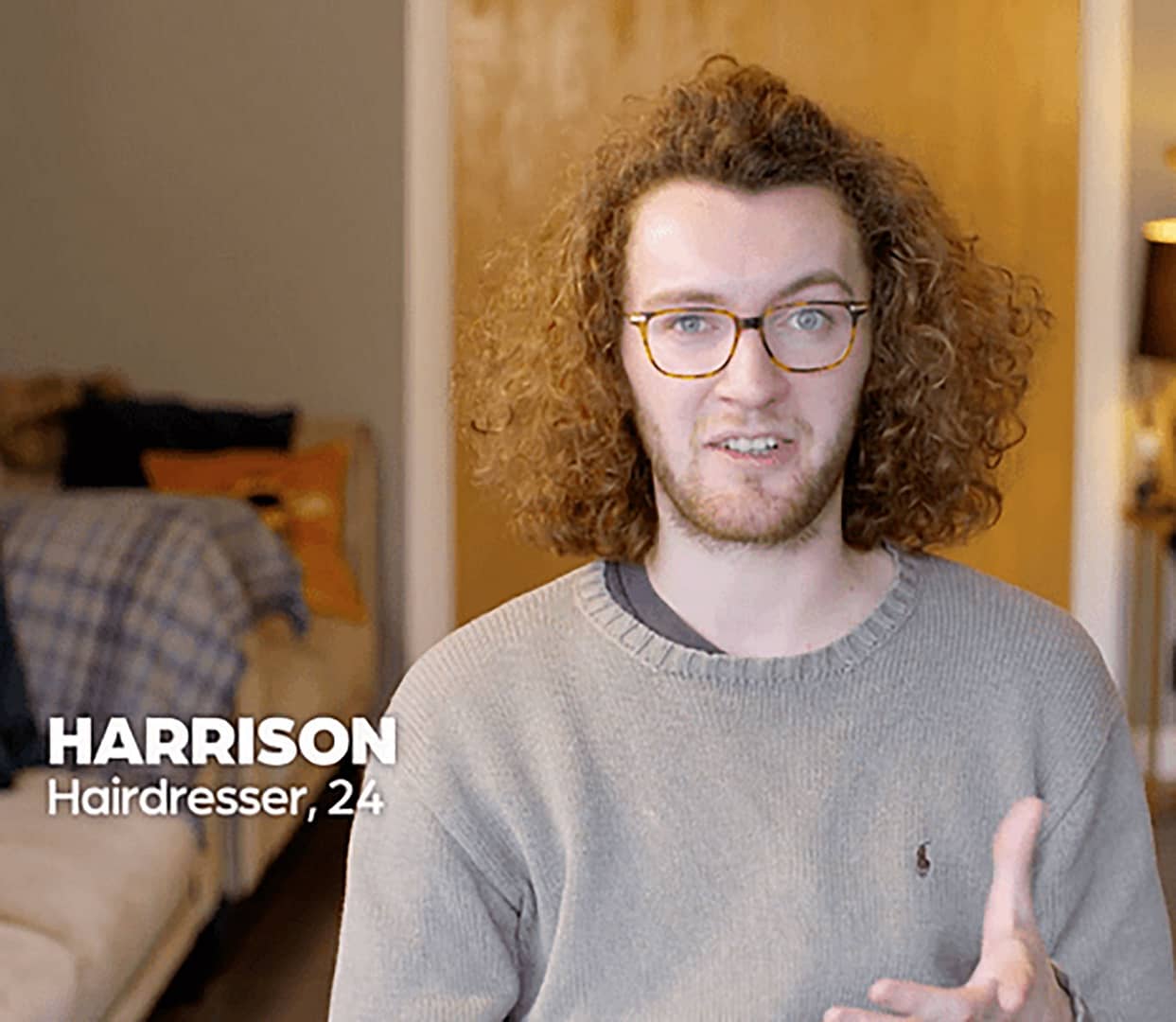
TV’s The Hair Loss Clinic
Episode 3
Episode 3 sees Wendy, Shabina and Harrison visit Eva at her Trichology Clinic to get a diagnosis, advice and treatment for their hair and scalp conditions.

Wendy
Wendy was diagnosed with Alopecia Areata and chronic Telogen Effluvium. Wendy experienced a sudden onset of patchy hair loss no one had really offered a diagnosis or explained what the condition was and why it was happening.
When I met Wendy, she was very distressed about her hair and was wearing “Hattie” a wig to cover the loss and didn’t even have the confidence to step outside without “Hattie”. After my consultation and examination, I diagnosed Alopecia Areata and chronic Telogen Effluvium.
Alopecia Areata is a spontaneous autoimmune condition that can clear as quickly as it came or can continue for many years. Alopecia Areata presents as patchy hair loss.
The scalp microscope revealed that there was no active loss that was still ongoing and that there were very positive signs of fine hair regrowth.
I also found from Wendy’s diet and blood test results that there were very low levels of vitamins and minerals necessary to support a normal hair growing and shedding cycle. Telogen effluvium causes the hair to shed more than is normal, it is not a hair loss condition but is very distressing when the extra hair loss is so visible when washing or brushing your hair.
I advised Wendy about dietary intake, in particular the importance of protein, started her on Tricoextra, a complete hair supplement to support increasing the necessary vitamin and mineral levels, and also demonstrated hair fibres, that really enhanced the fine newly growing hairs, so that Wendy could see them.
Wendy responded really well to treatment with a fantastic recovery of both conditions, her hair is now back to how she loves it and she is much more informed about what to do should the Alopecia Areata recur.
Gofbyr hair fibres are really fine and so easy to use, they really can make your hair look thicker and fuller and it is so quick and easy to do.
Shabina
Shabina had been trying to manage a progressive hair thinning over many years and was really distressed that nothing seemed to work. When I carried out my consultation and examination, I found 2 conditions; androgenetic alopecia, female pattern and chronic telogen effluvium.
Androgenetic Alopecia, female pattern causes the hair to miniaturise, it usually starts with the centre parting getting wider and an overall thinning to the top of the head. I treated this with topical Minoxidil at strength 5%.
Telogen Effluvium causes excessive hair shedding leading to thinning and a loss of overall hair density. This is not a hair loss condition; it is a disruption to how the hair grows and sheds and can be treated very successfully.
Shabina did not eat enough protein each day and also have low iron and vitamin B12 levels. I provided dietary advice and my supplement Tricoextra to support the increase in both iron and vitamin B12 levels.
Shabina really stuck to the treatment plan and her results speak for themselves. The improvement in overall hair health should be maintained with ongoing use of Minoxidil and ensuring the improvement in diet is maintained.


Harrison
Harrison had suffered with a flaky, itchy irritated scalp for most of his life. As a hairdresser he found it difficult to work with clients when his own scalp health was causing visible flaking and discomfort.
Harrison had a scalp condition caused seborrhoeic dermatitis, this is a very common condition, but is often poorly managed.
With seborrhoeic dermatitis the natural yeast that lives on the scalp becomes overactive causing flaking, itching and inflammation. To effectively manage this condition, you need a great treatment shampoo and a regular hair washing regime.
I used Juniper Juniper Therapy shampoo and conditioner. to be used every other day to clear and balance the scalp, Harrison was amazed at how much difference the right shampoo and frequency of washing made, giving him a clear calm scalp for the first time in many years.
Seborrhoeic dermatitis is an inflammatory condition, it can be triggered by changes in health, diet, stress and also seasonal changes too.
